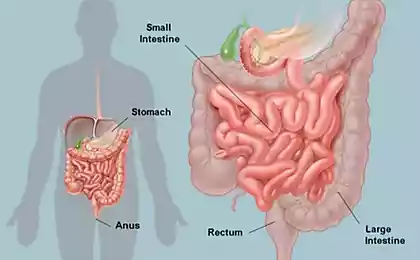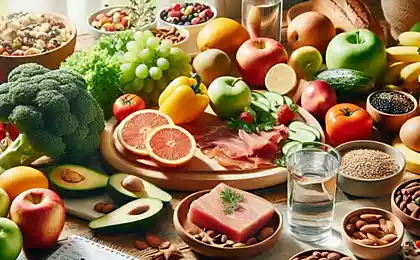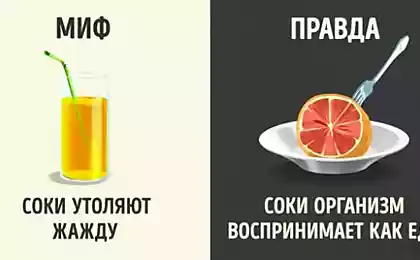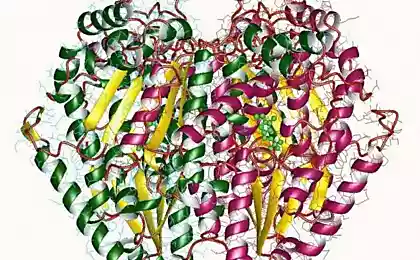600
9 most unscientific myths about nutrition generated by the mainstream
We offer you a selection of modern common myths and misconceptions about food that is high time to debunk:
1. Eggs - is unhealthy pischa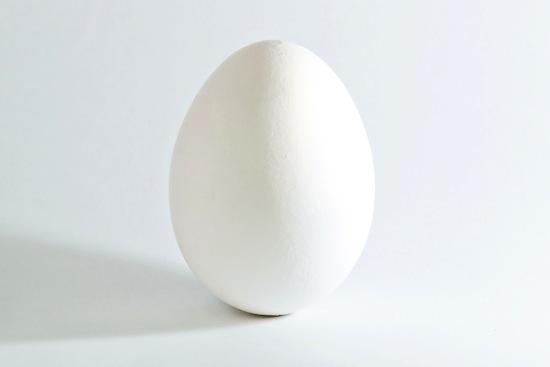
Almost all experts say that the eggs - not very useful product, since the yolk contains too much cholesterol, so often their use increases the risk of heart disease.
According to recent studies, high levels of cholesterol in your diet does not increase the blood cholesterol level. In fact, eggs are one of the most useful for human foods: they contain "good" cholesterol, all kinds of essential nutrients, and unique antioxidants needed for eye health.
2. Fatty foods - is vredno
Several decades ago, there was an opinion in the society that a large number of cardiovascular diseases due to the popularity of food rich in animal fats.
New analyzes show that it is not. In 2010, the year in a scientific journal published the results of 21 epidemiological studies, a total of 347,747 food. Result - absolutely no connection between heart disease and saturated fat food there. Opinion on the availability of such a relationship - just a theory, for unknown reasons, has become common.
3. You must have zlaki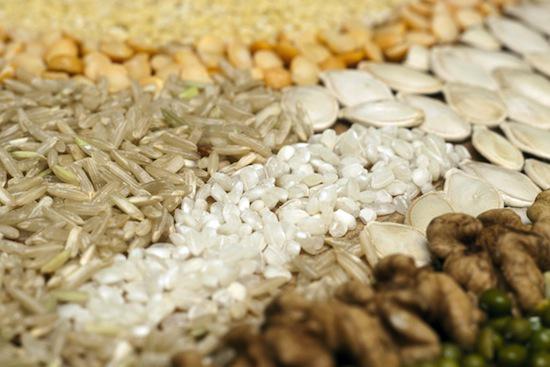
The idea that people must include a variety of cereals in your diet, in fact, never made sense. The agricultural revolution in our history took place relatively recently, and the genes had not changed so much that we need steel grains.
Cereals do not contain too many nutrients as compared to vegetables. In addition, they are rich in phytic acid, binding important minerals in the intestines and prevents their assimilation. For example, wheat contains much protein, called gluten, whose great content in the body may cause damage to intestinal membranes, pain, bloating and fatigue. Gluten is also associated with schizophrenia, and cerebellar ataxia.
4. There are a lot of protein is harmful to bone and pochek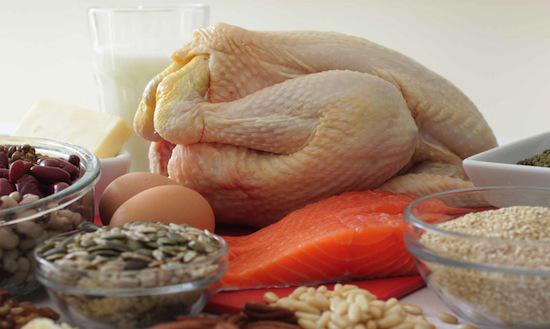
It is said that a diet high in protein is harmful to bone and kidney. Yes, in the short term excess protein increases the excretion of calcium from the bones, but in the long term has the opposite effect - making healthier bones and reduces the risk of fractures. In addition, the study found no association between a high intake of protein and kidney disease.
In fact the main risk factors for renal failure are diabetes and high blood pressure. Protein intake affects both diseases beneficial. And certainly a protein useful as prevention of osteoporosis and renal failure.
5. Eating a low-fat polezna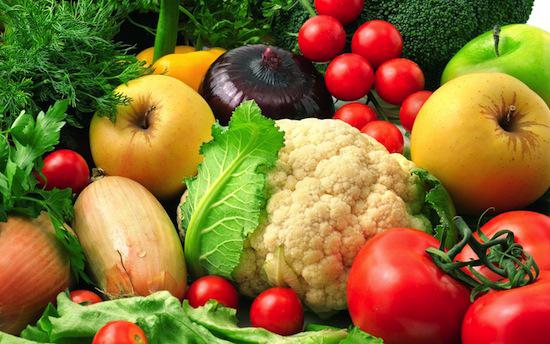
If you remove the food from absolutely all fats, it starts to taste like cardboard. Producers understand this, and therefore added to food other substances to compensate for the lack of fat.
Usually this sweeteners - sugar syrup, high fructose or artificial sweeteners. About sugar we talk later, but I would like to note that although artificial sweeteners and low in calories, but hardly useful to regular sugar. Many studies show a link between low-fat diet and various diseases - obesity, metabolic syndrome, diabetes, heart disease, premature birth, miscarriage, and chronic depression. In such products, healthy natural fats are replaced unnecessarily harmful substances.
6. Better during the day there are plenty of times, but small portsiyami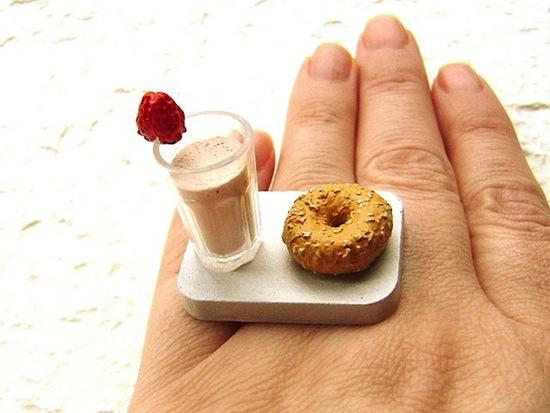
The idea that it is better to make several small meals a day to maintain a high metabolism - it is well-established, but a meaningless myth. Yes, the food is really a little increases your metabolism while you digest it, but we are talking about the total amount of food energy which can be used instead of the number of snacks.
Studies confirm that. One group of subjects fed many times a day a little, while the second group ate the same amount of food a day, but in two or three sets. It turned out that there is no difference.
Unnatural for the human body to be constantly fed. In the wild, the people ever a square meal, not every day. So long breaks between meals can not harm you in any way.
7. Carbohydrates should be the main source of kaloriy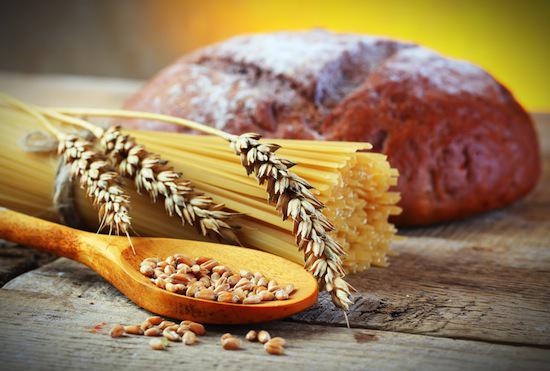
It is believed that a person should have as little as possible fatty foods, but carbohydrates in our diet should be 50-60% of total calories. If it were true, it would be a useful diet rich in cereals and sugar, and a minimum amount of meat and eggs.
Numerous studies prove conclusively that those who tend to be overweight, have diabetes or metabolic syndrome, this diet is dangerous, but for others - is harmful, because the straight road leads to obesity.
8. Vegetable oil is high in omega-6 polezno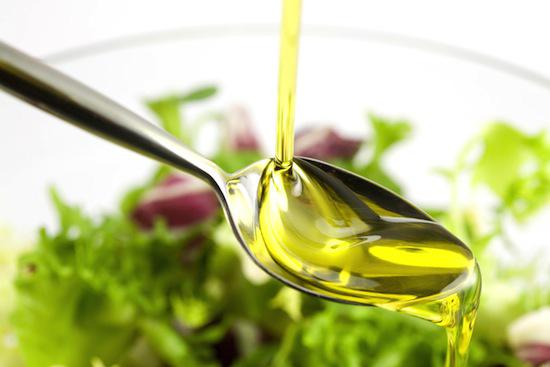
Polyunsaturated fatty acids are considered beneficial because some studies have shown that, thanks to their reduced risk of heart disease. But not all of these acids have similar properties.
There are fatty acids Omega-3 and Omega-6. Omega-3 reduce the risk of many diseases associated with inflammatory processes. But people need to get omega-3 and omega-6 in a certain proportion. If omega-6 much more, it may cause complications.
The largest source of omega-6 in the diet of Russians - is sunflower oil. Throughout human history, people have never had access to such an abundance of material, so that overeating oil - is unnatural for the body. It is better to increase the omega-3 contained, for example, almost any marine fish.
9. Sugar - junk food, because it contains "empty" kalorii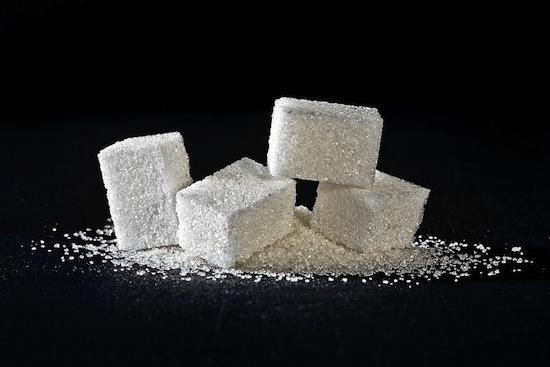
It is believed that the sugar is bad for you, because of the large number of empty calories. Yes, it's true - many calories, low nutrients. But this is - just the tip of the iceberg. Sugar is harmful not only for this reason.
Because of the high fructose sugar affect metabolism in such a way that "programs" for rapid deposition of body fat and metabolic diseases. Fructose is filtered by the liver and converted into fat, releasing into the blood very low density lipoproteins, which leads to an increase in triglycerides and cholesterol. This also prevents Estesstvenno development of insulin and leptin, leading to obesity and diabetes.
via factroom.ru
1. Eggs - is unhealthy pischa

Almost all experts say that the eggs - not very useful product, since the yolk contains too much cholesterol, so often their use increases the risk of heart disease.
According to recent studies, high levels of cholesterol in your diet does not increase the blood cholesterol level. In fact, eggs are one of the most useful for human foods: they contain "good" cholesterol, all kinds of essential nutrients, and unique antioxidants needed for eye health.
2. Fatty foods - is vredno

Several decades ago, there was an opinion in the society that a large number of cardiovascular diseases due to the popularity of food rich in animal fats.
New analyzes show that it is not. In 2010, the year in a scientific journal published the results of 21 epidemiological studies, a total of 347,747 food. Result - absolutely no connection between heart disease and saturated fat food there. Opinion on the availability of such a relationship - just a theory, for unknown reasons, has become common.
3. You must have zlaki

The idea that people must include a variety of cereals in your diet, in fact, never made sense. The agricultural revolution in our history took place relatively recently, and the genes had not changed so much that we need steel grains.
Cereals do not contain too many nutrients as compared to vegetables. In addition, they are rich in phytic acid, binding important minerals in the intestines and prevents their assimilation. For example, wheat contains much protein, called gluten, whose great content in the body may cause damage to intestinal membranes, pain, bloating and fatigue. Gluten is also associated with schizophrenia, and cerebellar ataxia.
4. There are a lot of protein is harmful to bone and pochek

It is said that a diet high in protein is harmful to bone and kidney. Yes, in the short term excess protein increases the excretion of calcium from the bones, but in the long term has the opposite effect - making healthier bones and reduces the risk of fractures. In addition, the study found no association between a high intake of protein and kidney disease.
In fact the main risk factors for renal failure are diabetes and high blood pressure. Protein intake affects both diseases beneficial. And certainly a protein useful as prevention of osteoporosis and renal failure.
5. Eating a low-fat polezna

If you remove the food from absolutely all fats, it starts to taste like cardboard. Producers understand this, and therefore added to food other substances to compensate for the lack of fat.
Usually this sweeteners - sugar syrup, high fructose or artificial sweeteners. About sugar we talk later, but I would like to note that although artificial sweeteners and low in calories, but hardly useful to regular sugar. Many studies show a link between low-fat diet and various diseases - obesity, metabolic syndrome, diabetes, heart disease, premature birth, miscarriage, and chronic depression. In such products, healthy natural fats are replaced unnecessarily harmful substances.
6. Better during the day there are plenty of times, but small portsiyami

The idea that it is better to make several small meals a day to maintain a high metabolism - it is well-established, but a meaningless myth. Yes, the food is really a little increases your metabolism while you digest it, but we are talking about the total amount of food energy which can be used instead of the number of snacks.
Studies confirm that. One group of subjects fed many times a day a little, while the second group ate the same amount of food a day, but in two or three sets. It turned out that there is no difference.
Unnatural for the human body to be constantly fed. In the wild, the people ever a square meal, not every day. So long breaks between meals can not harm you in any way.
7. Carbohydrates should be the main source of kaloriy

It is believed that a person should have as little as possible fatty foods, but carbohydrates in our diet should be 50-60% of total calories. If it were true, it would be a useful diet rich in cereals and sugar, and a minimum amount of meat and eggs.
Numerous studies prove conclusively that those who tend to be overweight, have diabetes or metabolic syndrome, this diet is dangerous, but for others - is harmful, because the straight road leads to obesity.
8. Vegetable oil is high in omega-6 polezno

Polyunsaturated fatty acids are considered beneficial because some studies have shown that, thanks to their reduced risk of heart disease. But not all of these acids have similar properties.
There are fatty acids Omega-3 and Omega-6. Omega-3 reduce the risk of many diseases associated with inflammatory processes. But people need to get omega-3 and omega-6 in a certain proportion. If omega-6 much more, it may cause complications.
The largest source of omega-6 in the diet of Russians - is sunflower oil. Throughout human history, people have never had access to such an abundance of material, so that overeating oil - is unnatural for the body. It is better to increase the omega-3 contained, for example, almost any marine fish.
9. Sugar - junk food, because it contains "empty" kalorii

It is believed that the sugar is bad for you, because of the large number of empty calories. Yes, it's true - many calories, low nutrients. But this is - just the tip of the iceberg. Sugar is harmful not only for this reason.
Because of the high fructose sugar affect metabolism in such a way that "programs" for rapid deposition of body fat and metabolic diseases. Fructose is filtered by the liver and converted into fat, releasing into the blood very low density lipoproteins, which leads to an increase in triglycerides and cholesterol. This also prevents Estesstvenno development of insulin and leptin, leading to obesity and diabetes.
via factroom.ru
Squinting works the same way as glasses
The Geneva Convention prohibits the use of weapons, change the weather












